CPAP Therapy
What is CPAP Therapy:
Continuous Positive Airway Pressure (CPAP) therapy is a leading treatment for Obstructive Sleep Apnea (OSA), a condition where breathing pauses or becomes shallow during sleep.
Patients begin with a proper diagnosis to ensure CPAP is the right fit. Once prescribed, the CPAP device gently delivers a steady flow of air through a mask, preventing airway collapse and supporting uninterrupted breathing throughout the night.
This non-surgical, highly effective therapy helps reduce snoring, improve sleep quality, and lower health risks linked to untreated sleep apnea, giving you safer, more restorative rest.
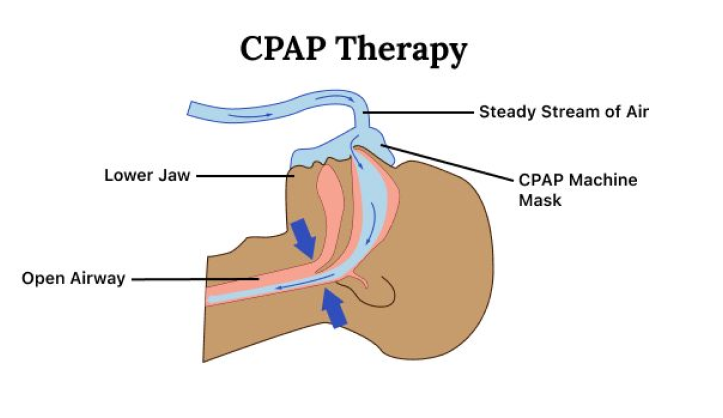

How it works:
A CPAP machine delivers a gentle flow of pressurised air through a mask worn during sleep. This airflow keeps your airway open, preventing snoring and breathing pauses caused by sleep apnea so you can enjoy uninterrupted, restorative rest.
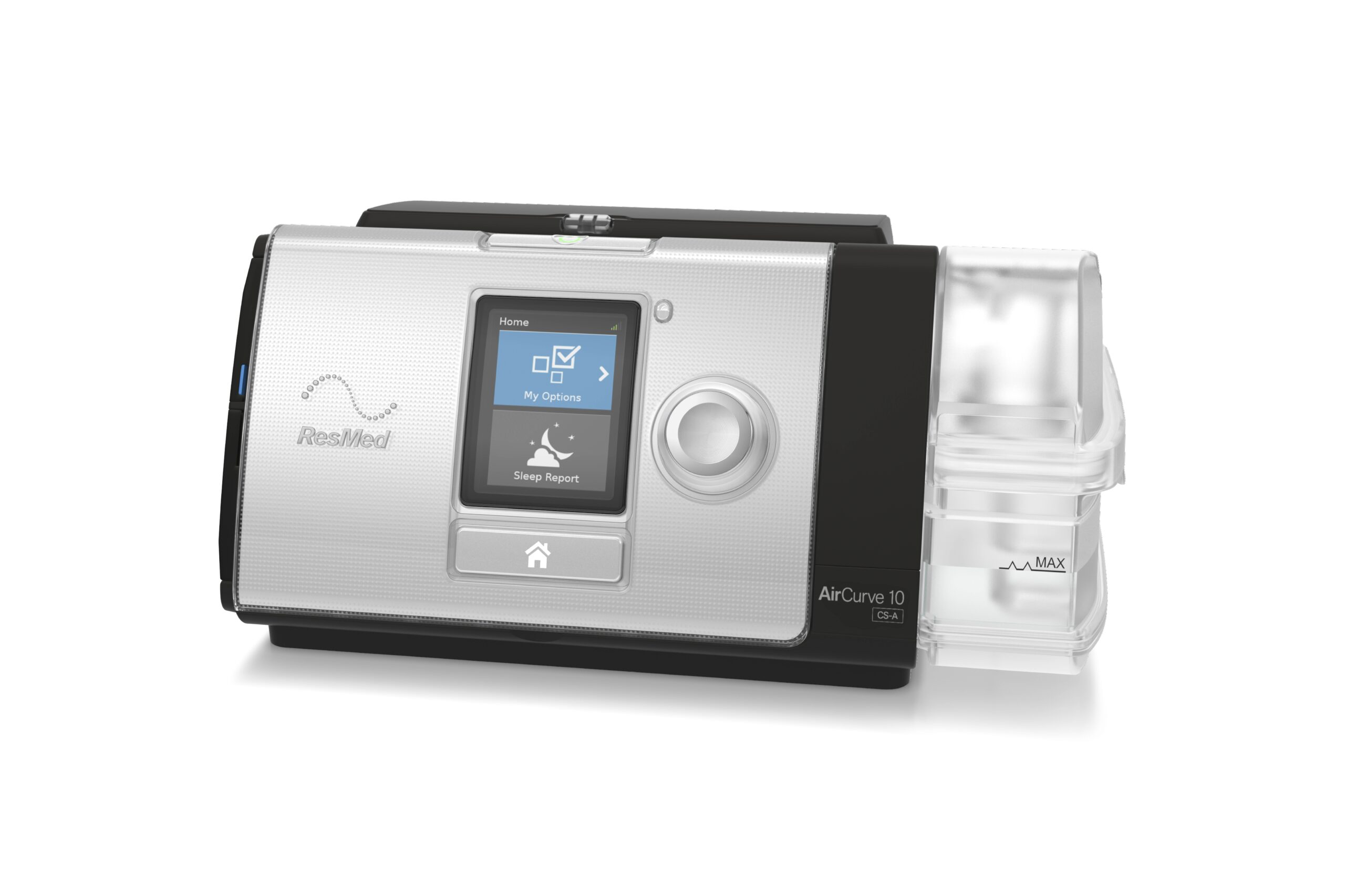
Device Types:
Choose from different CPAP setups from lightweight travel-friendly devices to full-featured machines with various mask options, designed for comfort and lifestyle needs.

Maintenance and Support:
Our team provides ongoing guidance, regular device checks, and troubleshooting support to ensure your CPAP therapy stays effective long-term.
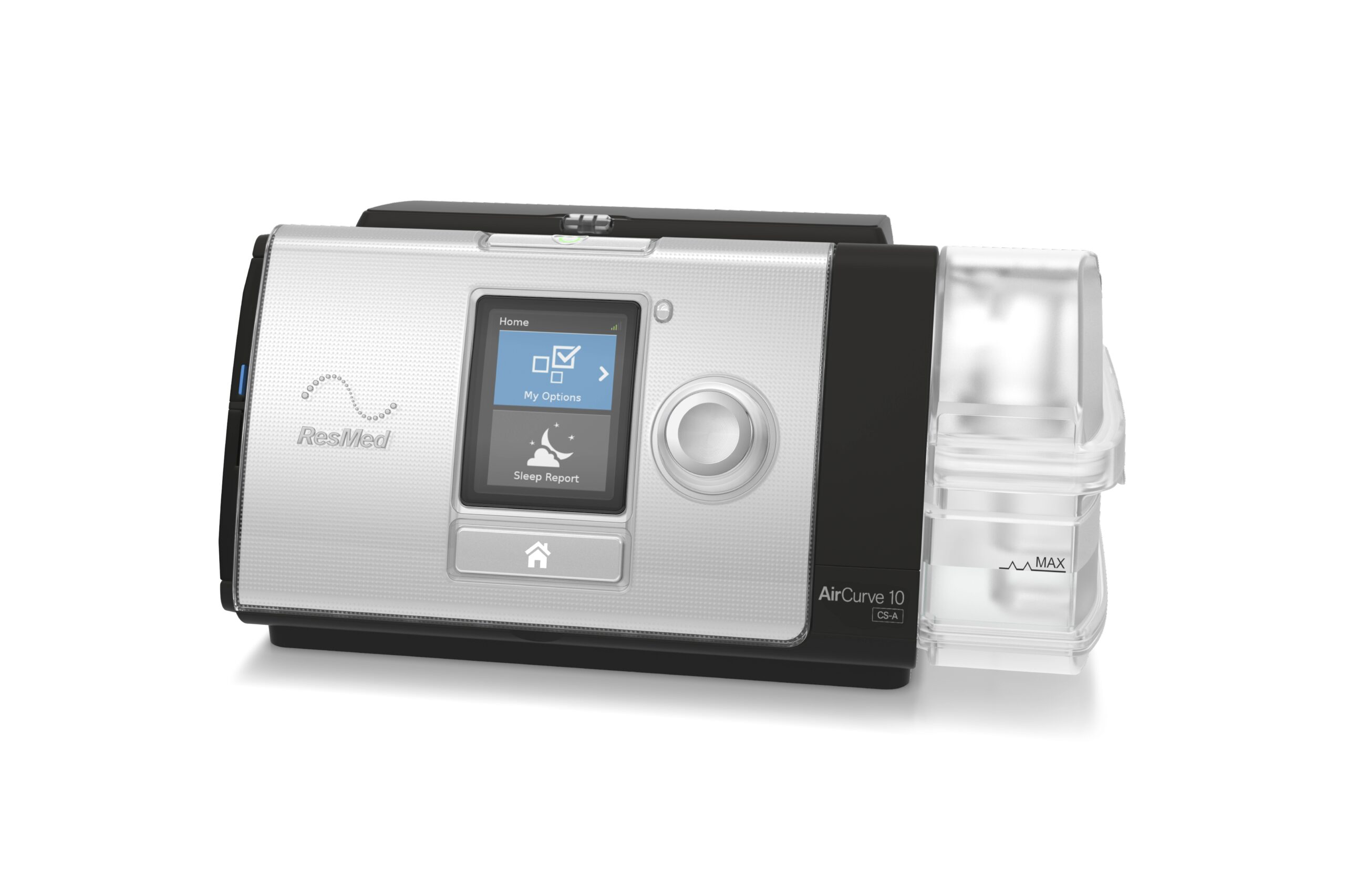
AirCurve 10
A bilevel device offering advanced comfort features for users who need varying pressure support. Ideal for those with more complex sleep apnea needs.
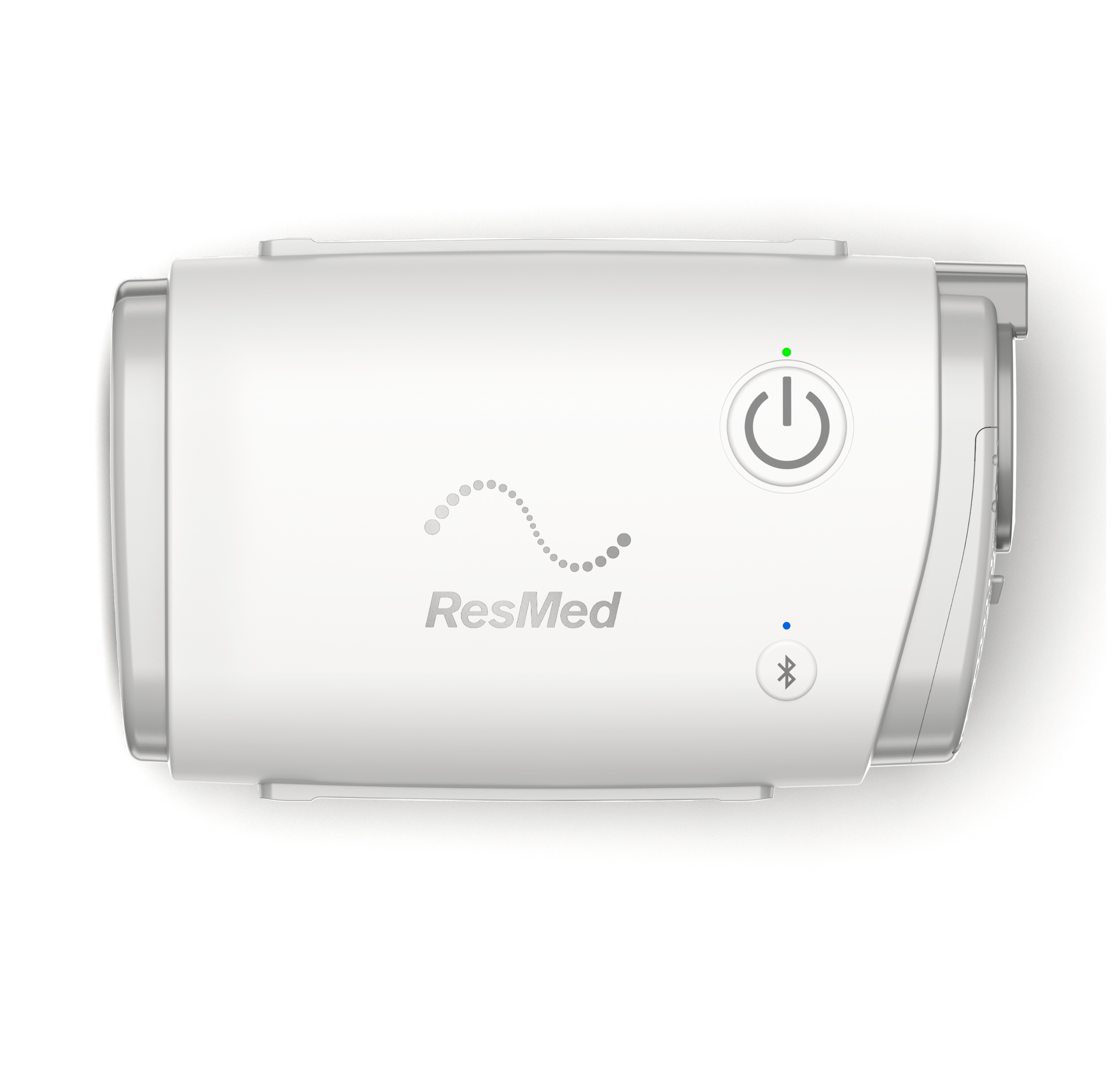
Air Mini
The smallest portable CPAP machine, perfect for frequent travelers. Compact yet powerful, offering waterless humidification options.
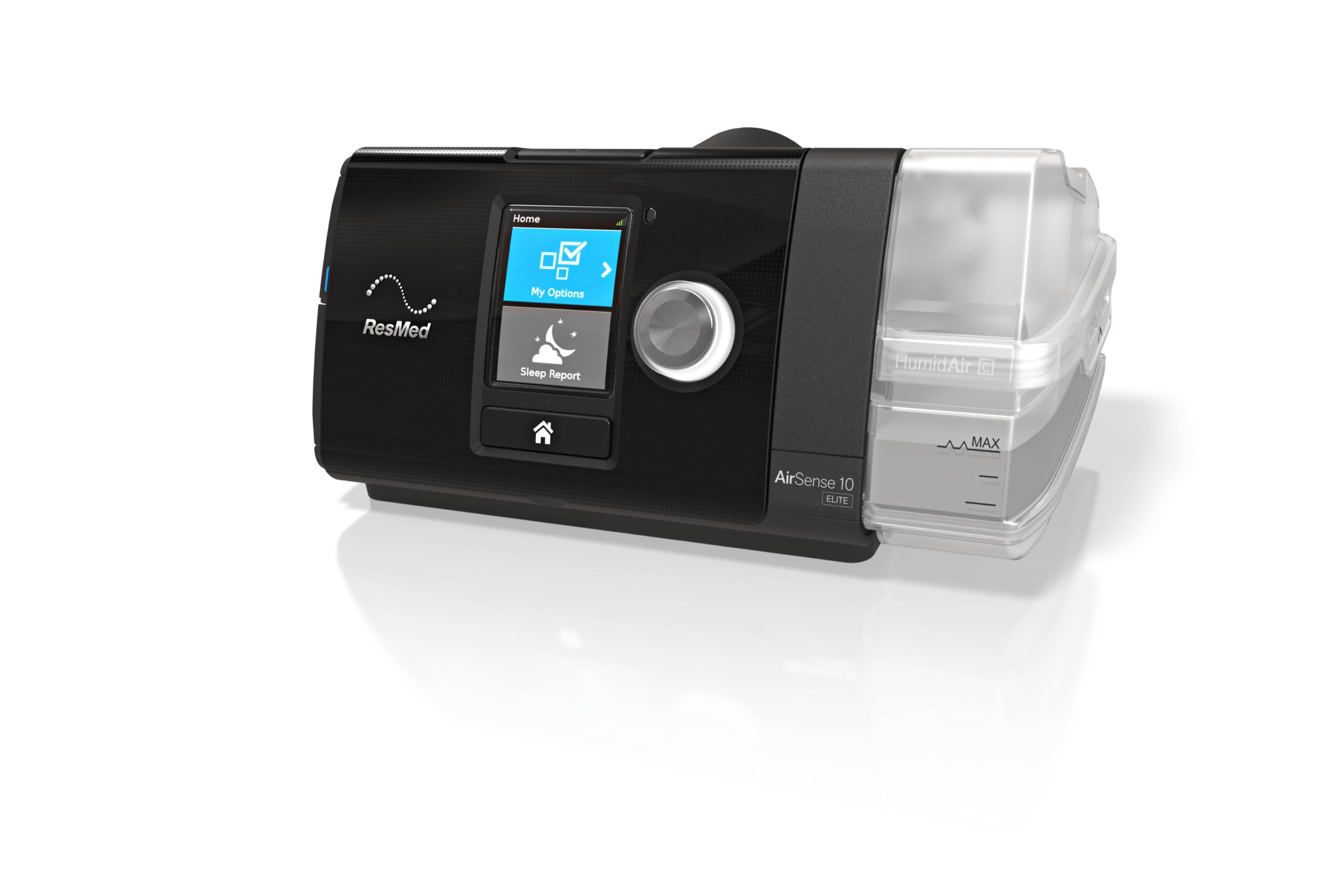
AirSense 10
A user-friendly, full-featured CPAP machine with built-in humidifier and advanced event detection, making therapy simple and effective.
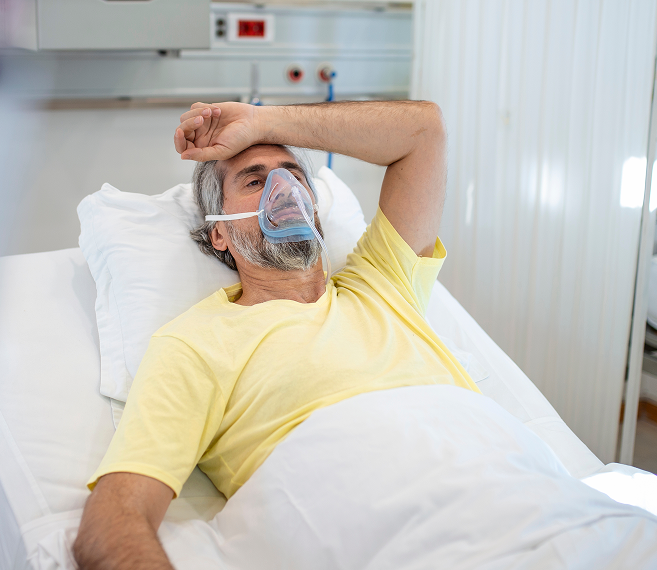
How to Get Started with CPAP Therapy
- Consult Your Doctor: If you think you may have sleep apnea, schedule an appointment with a healthcare professional. A sleep study will help determine if CPAP therapy is the right option for you.
- Sleep Study: This can be done at a sleep clinic or at home with portable monitoring devices. Your doctor will interpret the results and prescribe the appropriate settings for your CPAP machine.
- CPAP Equipment Setup: Once prescribed, you'll work with a specialist or sleep technician to find the best CPAP machine and mask for your needs. The specialist will also ensure your machine is set to the right pressure.
- Ongoing Follow-Up: Regular follow-ups with your healthcare provider or sleep specialist are important to monitor your progress and adjust the therapy settings if necessary.
Common CPAP Challenges and Solutions
- Mask Discomfort: your mask doesn’t fit properly, it may cause discomfort or leaks. Try different mask types (e.g., nasal pillows, full-face masks) to find one that s If uits you best.
- Dry Mouth or Nasal Congestion: If you experience dryness, using a heated humidifier with your CPAP machine can help prevent this issue. Also, consider adjusting the pressure settings or using a full-face mask if nasal congestion is a problem.
- Claustrophobia: Some people may feel anxious or claustrophobic when wearing a mask. It can help to start by wearing the mask for short periods during the day to get accustomed to it. You can also try a smaller, more minimal mask style to reduce the feeling of confinement.
- CPAP Noise: Modern CPAP machines are designed to be very quiet. However, if the sound is still disturbing, make sure the machine is placed on a stable surface, away from walls or objects that might amplify noise.
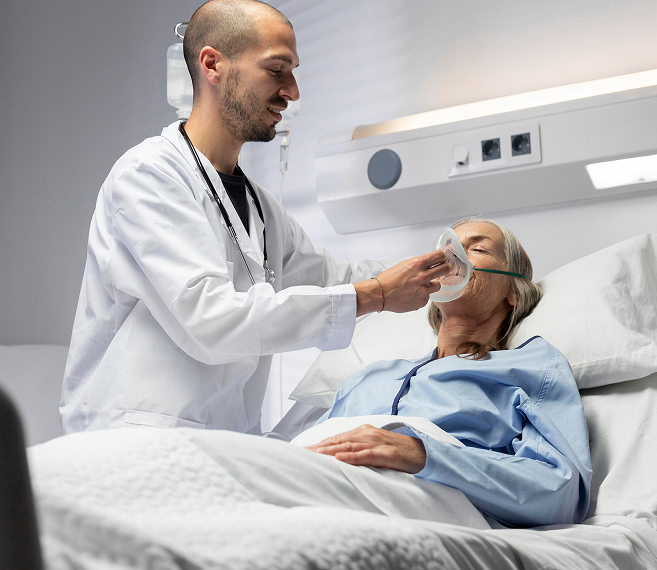
Frequently Asked Questions (FAQ)
Sleep apnea is a sleep disorder in which the muscles in the throat relax to the point of collapse, restricting airflow. This causes breathing to become shallow and even stop for seconds or minutes at a time, depriving the body and brain of oxygen.
The lack of deep sleep can cause significant fatigue and elevate the risk for serious health problems. Most people with sleep apnea are unaware they have it. Untreated sleep apnea can lead to serious complications such as cardiovascular problems, high blood pressure, and an increased risk of accidents.
There are three main types of sleep apnea.
- Obstructive Sleep Apnea (OSA): When we sleep, the throat relaxes. For people with OSA, sometimes they relax so much that the airway becomes narrowed or blocked. As a result, air flow is reduced or completely stops flowing into the upper airway and the lungs, so the body doesn’t get the oxygen it needs to function. To summarize, it occurs when the throat muscles relax excessively.
- Central Sleep Apnea (CSA): Involves a failure of the brain to send proper signals to the muscles that control breathing.
- Complex/Mixed Sleep Apnea: A combination of both obstructive and central sleep apnea.
Common symptoms include loud snoring, choking or gasping during sleep, daytime sleepiness, difficulty concentrating, and morning headaches.
The most common/best way for sleep apnea to be diagnosed is with a sleep test ordered by your physician. The test can be done either overnight in a sleep lab or through a home sleep test. Reference
Risk factors include obesity, neck circumference, being older, family history, smoking, alcohol use, and nasal congestion.
Untreated sleep apnea can lead to serious health issues such as hypertension, heart disease, stroke, diabetes, and an increased risk of accidents due to daytime sleepiness.
CPAP (Continuous Positive Airway Pressure) therapy involves using a machine that delivers a constant stream of air to keep the airways open during sleep. Other treatment includes lifestyle changes (weight loss, positional therapy), oral appliances, surgery and in some cases, medication.
Effective sleep apnea therapy, which includes the uses of CPAP equipment, has been shown to help ease common symptoms and improve energy levels, productivity and overall mind-body wellness. It’s important to remember that if left untreated, sleep apnea can lead to other serious health issues.
A CPAP (Continuous Positive Airway Pressure) machine is a common and effective treatment for Obstructive Sleep Apnea (OSA). How it works and how it helps improve sleep:
- Maintains Open Airway:
- The primary function of a CPAP machine is to keep the airway open during sleep. In individuals with sleep apnea, the muscles in the throat relax excessively, leading to a collapse or partial blockage of the airway. The CPAP machine delivers a continuous stream of air through a mask, which prevents the airway from collapsing.
- Increases Air Pressure:
- The CPAP machine provides a constant and steady flow of air at a prescribed pressure level. This pressure acts as a pneumatic splint, preventing the collapse of the throat tissues and maintaining an open airway.
- Eliminates Snoring:
- Snoring is a common symptom of sleep apnea. The CPAP machine helps eliminate or significantly reduce snoring by preventing the vibration of the relaxed throat tissues.
- Improves Oxygen Levels:
- By keeping the airway open, the CPAP machine ensures a consistent flow of oxygen into the lungs. This helps maintain adequate oxygen levels in the blood, preventing drops in oxygen saturation that can occur during apnea events.
- Reduces Daytime Sleepiness:
- One of the consequences of untreated sleep apnea is excessive daytime sleepiness. The CPAP machine improves sleep quality, leading to better-rested nights and reduced daytime sleepiness.
- Enhances Sleep Quality:
- With the continuous positive airway pressure, individuals using a CPAP machine experience improved sleep quality. By preventing interruptions in breathing, it allows for more consistent and deeper sleep cycles.
- Reduces the Risk of Health Complications:
- Effective treatment with a CPAP machine can reduce the risk of health complications associated with untreated sleep apnea, such as hypertension, cardiovascular disease, and diabetes.
- Enhances Cognitive Function:
- Adequate and quality sleep is essential for cognitive function. By addressing sleep apnea, the CPAP machine contributes to improved concentration, memory, and overall cognitive performance.
- Enhances Mood:
- Sleep apnea can contribute to mood disturbances and irritability. Treating sleep apnea with a CPAP machine can lead to improved mood and a better overall sense of well-being.
In many cases, lifestyle changes and treatments can effectively manage sleep apnea, but it may not completely be cured. Continuous management is often necessary.
What Our Customer Say

Lorem ipsum dolor sit amet, consectetur adipiscing elit, sed do eiusmod tempor incididunt ut labore et dolore magna aliqua. Ut enim ad minim veniam, quis nostrud exercitation ullamco laboris nisi ut aliquip ex ea commodo consequat
Makenna Frye
CEO of Lorem ipsum

Lorem ipsum dolor sit amet, consectetur adipiscing elit, sed do eiusmod tempor incididunt ut labore et dolore magna aliqua. Ut enim ad minim veniam, quis nostrud exercitation ullamco laboris nisi ut aliquip ex ea commodo consequatLorem ipsum dolor sit amet, consectetur adipiscing elit, sed do eiusmod tempor incididunt
Makenna Frye
CEO of Lorem ipsum

Lorem ipsum dolor sit amet, consectetur adipiscing elit, sed do eiusmod tempor incididunt ut labore et dolore magna aliqua. Ut enim ad minim veniam, quis nostrud exercitation ullamco laboris nisi ut aliquip ex ea commodo consequat
Makenna Frye
CEO of Lorem ipsum

Lorem ipsum dolor sit amet, consectetur adipiscing elit, sed do eiusmod tempor incididunt ut labore et dolore magna aliqua. Ut enim ad minim veniam, quis nostrud exercitation ullamco laboris nisi ut aliquip ex ea commodo consequat
Makenna Frye
CEO of Lorem ipsum
Our Satisfied Customers
The service is very prompt, courteous and excellent. I can hear well with my Signia hearing aids now and the audiologist is experienced too in adjusting my hearing aids.

Ms. See Chee Keong
I am very satisfied with Audiolab Service and will definitely recommend their service to my friends. My session also went smoothly as they solves my complaints and the audiologist was helpful enough in helping with my concerns. Thank you Audiolab! =)

Ms. Zilfalila Haton
Good job done by audiologist & I love wearing signia hearing aids on both ears. Can hear very well now. I am satisfied with their service and I am a satisfied customer whenever I’m coming to their outlet.

Ms. Muslina
I am very satisfied with Audiolab Service and will definitely recommend their service to my friends. My session also went smoothly as they solves my complaints and the audiologist was helpful enough in helping with my concerns. Thank you Audiolab! =)

Ms. Zilfalila Haton


